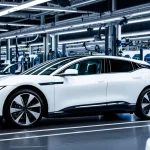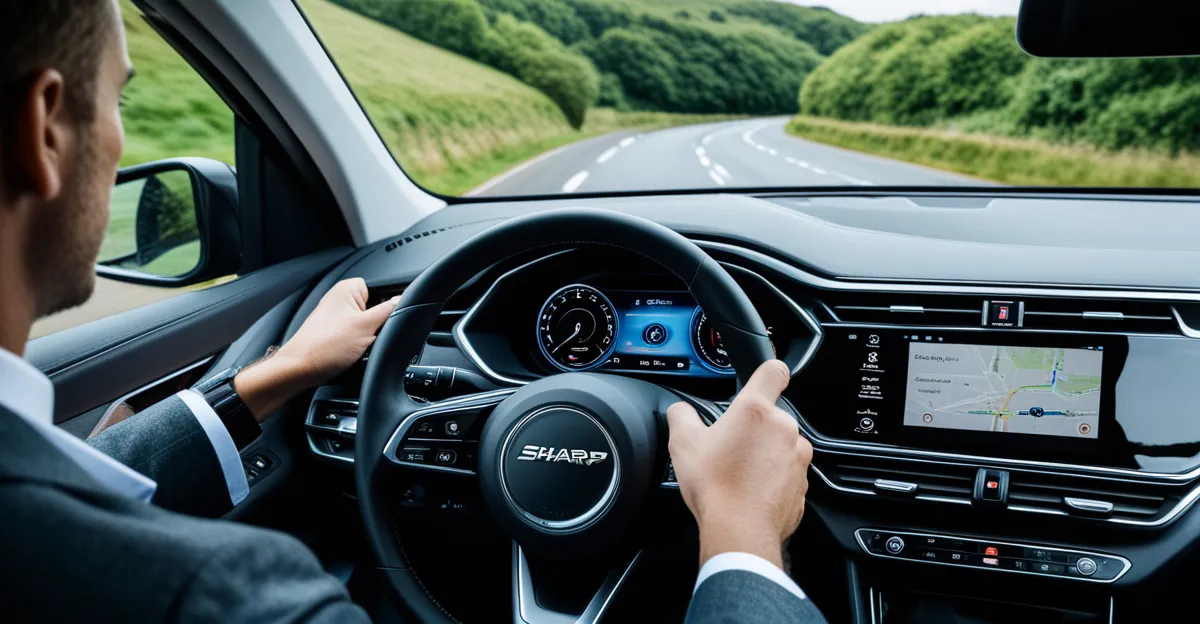Key advantages of connected vehicles for the UK automotive sector
Connected vehicles bring significant benefits to the UK automotive sector by transforming how cars interact with each other and their environment. One major advantage is the enhancement of road safety. Through advanced vehicle-to-vehicle (V2V) and vehicle-to-infrastructure (V2I) communication, connected car technology enables real-time warnings about hazards, sudden braking, or changing traffic lights. This timely data sharing reduces collision risks and improves overall safety on UK roads.
Moreover, connected vehicles enhance transport efficiency. By providing continuous updates on traffic conditions, these systems enable better route planning and congestion management. This advantage helps reduce travel time and fuel consumption, contributing to smoother journeys. In the UK automotive industry impact, such efficiency gains lead to more reliable deliveries and improved fleet management for commercial operators.
Also to discover : What strategies are UK automakers using to boost electric vehicle production?
Finally, connected car technology supports emission reductions, a critical benefit in the UK’s push toward sustainability. Optimised driving patterns and logistics operations lower carbon footprints by minimising idle times and unnecessary accelerations. These advantages converge to solidify the positive role of connected vehicles in advancing the UK’s automotive industry and aligning it with future mobility goals.
UK government initiatives supporting connected vehicles
Funding, policy, and infrastructure driving innovation
In the same genre : How are UK automakers contributing to economic growth?
The UK government connected vehicle policy is pivotal in accelerating the deployment of connected car technology nationwide. National strategies focus on integrating smart transport infrastructure with vehicle communication systems, enabling data sharing and safer, more efficient roadways. For example, substantial government funding supports research and development projects aimed at creating a robust ecosystem for connected and autonomous vehicles.
Regulatory frameworks play a critical role in this process, providing clear guidelines that enable automotive companies to innovate confidently. The government’s commitment ensures these technologies comply with safety, privacy, and environmental standards, further encouraging adoption across the UK.
To test and refine connected vehicle solutions, the UK hosts numerous testbeds and pilot programs. These initiatives facilitate real-world experimentation, allowing stakeholders to evaluate system performance and interoperability in various urban and rural environments. These programs significantly contribute to the UK automotive innovation landscape by accelerating product maturity and industry readiness for future mobility challenges. Through coordinated policy and infrastructure support, the UK is positioning itself as a global leader in connected vehicle technology.
Economic and business impacts on UK automotive players
The UK automotive sector economy is experiencing significant transformation due to connected vehicle technology. This innovation fuels industry innovation by encouraging companies to develop smarter, safer, and more efficient vehicles. As a result, the sector sees a boost in competitiveness and job creation, reinforcing the UK’s position as a global automotive hub.
Connected vehicles revolutionise logistics and supply chain UK practices by providing real-time data that improves fleet management and delivery efficiency. For example, predictive analytics enable companies to optimise routes, reduce fuel consumption, and anticipate maintenance needs, cutting operational costs. These improvements enhance urban mobility and create opportunities for public transport modernisation, offering cities more sustainable and integrated transit options.
Moreover, businesses benefit from improved asset utilisation and flexibility, crucial in a market demanding rapid adaptation. The integration of connected car technology with logistics enhances coordination across sectors, supporting smoother supply chains. This transformation highlights not only economic benefits but also underscores how connected vehicles drive the future of mobility and business innovation in the UK automotive landscape.







